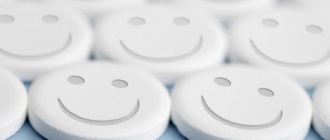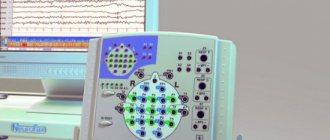Antidepressants and withdrawal syndrome
Antidepressant withdrawal syndrome
➤ Tips for relieving withdrawal symptoms.
For a person suffering from major depression, an antidepressant (Prozac, Paxil) can indeed be a savior, both figuratively and figuratively, but there may come a point when you feel better and are ready to experience life without it. If this describes you, be sure to talk to your doctor first.
For what?
Because antidepressants can cause withdrawal symptoms if there are significant fluctuations in the amount of medication in your system or if you suddenly stop taking them completely. Although these symptoms are rarely life-threatening, they can be uncomfortable. Your doctor can create a tapering schedule for your medications to help minimize or avoid withdrawal symptoms.
Causes of antidepressant withdrawal syndrome
Antidepressant Withdrawal Syndrome
➤ Antidepressant withdrawal syndrome occurs in about 20 percent of people who take an antidepressant regularly for at least a month and suddenly stop taking it or who sharply reduce their dose. Some types of antidepressants seem to be more likely to cause withdrawal symptoms than others, but you can develop it in any type.
While stopping an antidepressant does involve some type of withdrawal, it does not mean you are addicted to the antidepressant. When you are addicted to a substance such as drugs or alcohol, it causes changes in your brain that lead to cravings, a need for increased amounts of the substance, and a strong desire to use the substance, even though it often results in negative consequences. Antidepressants do not cause these long-term changes in the brain and do not lead to cravings or addiction.
Here is Jasmine's story illustrating these changes due to poisons (drugs)
“The doctor prescribed a tricyclic antidepressant for my daughter’s nocturnal enuresis... Very quickly, the daughter became agitated and hostile... The psychiatrist made a new diagnosis: bipolar disorder and prescribed Zoloft, Fluvoxamine and Zyprexa... She became worse, the psychiatrist increased the dose of Zyprexa... At the hospital she was given eleven drugs for thirteen days to cope with psychosis...
A new attack occurred... The doctor says: “She is hopeless”... Now she lives in a boarding house, avoiding contact with people. Sometimes he will say one or two words and remain silent. Doctors tell me that she has always been prone to schizophrenia. But the doctors never asked about her history, about what she was like before the pills.
The hardest thing to accept is that we came for help when she was eleven years old, to solve a minor problem that had nothing to do with psychiatry. In my imagination I see her laughing, as if she were back again. But we lost her, although her body remains. Every minute I see what I have lost.”
What do antidepressant withdrawal symptoms look like?
Antidepressant Withdrawal Syndrome
➤ Symptoms of antidepressant withdrawal syndrome are usually mild, usually starting within two to four days and lasting only a week or two. Symptoms include:
- Flu symptoms such as fatigue, sweating, soreness, headache and feeling sluggish
- Insomnia, which may be accompanied by nightmares or vivid dreams
- Nausea and potentially vomiting
- Balance problems such as dizziness, feeling lightheaded, or lightheaded (feeling like you're spinning or tilting)
- Sensory disturbances such as tingling, burning, or feeling like you're in shock
- Agitation, irritability, restlessness, aggression, or mania
Termination vs. Relapse
Antidepressant Withdrawal Syndrome
➤ For some people, withdrawal symptoms may feel as if their depression or anxiety is returning, and, in fact, stopping an antidepressant may increase the risk of relapse. Because of this, it is important to distinguish between withdrawal and relapse. The biggest difference between the two is that discontinuation symptoms usually begin a few days after stopping an antidepressant, whereas relapse usually takes longer and symptoms develop more gradually.
Antidepressant withdrawal syndrome
➤ Another difference is that withdrawal often includes physical symptoms that are not associated with depression or anxiety, such as dizziness, nausea, or flu-like symptoms. With withdrawal symptoms, symptoms go away over time, usually within one to three weeks, but if you have a relapse of depression or anxiety, symptoms do not go away and may even get worse. Also, if you start taking antidepressants again, withdrawal symptoms will go away quickly, but depression or anxiety will take longer to react.
Here are some tips to help you avoid withdrawal symptoms and get relief if it happens to you.
#1 Let's look at Prozac
Antidepressant withdrawal syndrome
➤ Prozac antidepressant - close-up of pills.
Prozac (fluoxetine) belongs to the selective serotonin reuptake inhibitors, or SSRIs, class of drugs, along with drugs such as Zoloft (sertraline) and Lexapro (escitalopram). This popular antidepressant has a very long half-life, meaning that after you stop taking it, it leaves your body more slowly than most other SSRIs. For this reason, you are unlikely to experience extreme withdrawal symptoms with Prozac. Keep this in mind when you and your doctor discuss which antidepressant you should try, or if you are considering switching to another one.
#2 Canceling slowly
Antidepressant withdrawal syndrome
➤ Woman holding antidepressant pills.
If you and your doctor decide it's time to stop taking your antidepressant, withdrawal symptoms can be avoided entirely. Even if you are tempted, the main thing is not to suddenly quit the medicine, but instead to reduce your intake of the drug. This means gradually reducing the dose over a long period of time. How you do this will depend on how long you've been taking the medicine, how high your dose is (if you take a low dose, you'll be able to taper off faster), and any other factors the doctor may consider.
#3 Ask about Prozac to treat symptoms
Antidepressant withdrawal syndrome
➤ How to deal with antidepressant withdrawal?
Antidepressant Withdrawal Syndrome
➤ Sometimes, even if you are slow and careful when weaning off an antidepressant, you may still experience withdrawal symptoms. One possible way to get relief is to take a single 20 mg dose of Prozac. Your symptoms will likely disappear within a few hours. And because of Prozac's long half-life, you won't experience withdrawal symptoms after taking this capsule. Ask your doctor about this option if your symptoms bother you.
If you took a very high dose of the SSRI Paxil (paroxetine) or Effexor (venlafaxine), which is a selective serotonin norepinephrine reuptake inhibitor (SNRI), you may need a second 20-milligram dose of Prozac. Benadryl (diphenhydramine) is an allergy medication that is reported to help relieve symptoms, although it may have a sedative effect.
#4 Be active!
Antidepressant withdrawal syndrome
➤ What happens when you exercise?
If you haven't been exercising regularly, start by stopping your antidepressant. If you've been active, keep it up. Aim for at least three times a week. Exercise boosts your mood by releasing feel-good endorphins and gives you an outlet to relieve stress, all of which can help you keep depression at bay when you taper off and eventually stop taking your antidepressant.
#5 Check with your doctor
Antidepressant withdrawal syndrome
➤ Smiling female doctor talking to a patient in the office about antidepressants.
About a month after you stop taking your antidepressant, you should schedule a follow-up appointment with your doctor so he or she can make sure all withdrawal symptoms have passed and evaluate your mental health. Frequent follow-ups may be necessary early in your transition to make sure you don't have a relapse, so make sure you make an appointment and tell your doctor if you think depression or anxiety is returning.
#6 Consider the switch
Antidepressant withdrawal syndrome
➤ Prozac in a capsule in foil packaging, close-up.
Let's say you're taking a selective serotonin reuptake inhibitor (SSRI), but it doesn't work very well for you or causes side effects that you can't live with. Instead of stopping cold turkey and potentially causing withdrawal symptoms, talk to your doctor about switching to a different medication, especially if you haven't taken it in a while. You should be able to switch directly from your current medication to another SSRI without causing withdrawal symptoms, meaning that you will not need to wean yourself off the first medication before starting the second.
The same applies when switching from an SSRI to a selective serotonin-norepinephrine reuptake inhibitor (SSRI) such as Effexor (venlafaxine). And you can easily go straight from Prozac (fluoxetine) to any other antidepressant except one in the class of monoamine oxidase inhibitors (MAOIs), the first type of antidepressant developed. These medications are not as safe and have more side effects than the newer ones, so it is unlikely that your doctor will prescribe the drug for you unless you have truly been unable to take any of the SSRIs or SSRIs.
Addiction treatment
We do not recommend treating addiction to one drug with another. Trying to cope with emotional problems and poor mental health with the help of other drugs, a person will replace one addiction with another.
Let's look at this from a different angle. Is it necessary to start treatment with antidepressants at all? After all, depression arose for some reason, due to which the level of serotonin decreased. And these reasons can be many, from stress due to the loss of a loved one or job, to physical illness and hormonal disorders.
In addition to drug treatment, there are other ways to cope with both depression and addiction:
- Healthy nutrition and vitamin-mineral complexes. Less flour and sweets, more fresh vegetables, fish (omega 3 improves memory, concentration, performance and increases serotonin levels) and healthy fats (for the functioning of the hormonal system). It is known that “a healthy mind in a healthy body,” and helping the body to be healthy will certainly improve your mood.
- Sport. Physical activity that you enjoy helps with depression. The main thing is to start.
- Get enough sleep to rest and recuperate.
- Walking that kills three birds with one stone: saturates the body with oxygen, vitamin D and distracts from negative thoughts about the past. Walking and looking around at houses, cars, trees and everything that is around helps you come to your senses and improve your sleep.
- Goals. When a person has goals, when he moves towards them, overcoming obstacles, he can be happy.
#7 Stick to your schedule
Antidepressant withdrawal syndrome
➤ A Chinese woman checks her antidepressant intake hours.
Antidepressant withdrawal syndrome ➤ Some antidepressants, such as Effexor (venlafaxine), are the opposite of Prozac (fluoxetine): they leave your system quickly and therefore can cause withdrawal symptoms. This can happen even if you are just a little late taking your usual dose. If you happen to forget your antidepressant, you can go ahead and take it as soon as you realize you missed it. The exception is when it is time for your next scheduled dose; in this case, wait until then and get back on track.
What is depression like?
Surprisingly, when I was not depressed, I did not understand the meaning of the words used to describe depression. Having experienced it, I believe that any potential patient will recognize this condition instantly. The rest will say “get it together, you wimp.” You can't describe it, you can only experience it. But, like the others, I will try to formulate it.
A person does not feel within himself, not only the desire, but also the ability to perform even the simplest action. Many healthy people can easily imagine the reluctance to do exercises in the morning, almost turning into an impossibility. Now intensify this feeling and apply it to things like standing up, drinking a glass of water, or brushing your teeth.
Since the patient is constantly under pressure from the outside world, constantly forcing him to do certain things, he may withdraw into himself or, on the contrary, be irritable.
We suggest you familiarize yourself with Corvalol for a hangover: can you drink it?
All this is often layered with various kinds of dependencies. Most often - food (cakes, sweets and fast food provide a seeming surge of energy for a short time) or gaming (getting a feeling of progress in the gaming space is much easier than in real life).
I didn’t get to the point of not wanting to drink a glass of water. But it’s easy to spend two hours every day choosing a game that I would like to play, and still not decide on anything because of disgust. If you recognize yourself in this description, please consult a doctor.
If we ignore pharmacology, then all techniques come down to one thing. A doctor, a pill and some simple methods, which will be discussed later, restore your will to live. On the one hand, the desire to do something slowly returns to you. On the other hand, the joy of what has been done.
Why is depression bad? You can't do anything. Without doing anything, you don't get results. If you don't get results, you don't get rewards. Without receiving a reward, you do not receive motivation to move on to the next task. It's a vicious circle, a noose that tightens around your neck.
To untangle the stranglehold, you need to carefully and in a controlled manner train you to succeed, no matter how small it may be. Then add a little weight, make sure you're holding. More. More. More. And so on until the superman. Joke.
Imagine that you live on the left bank of a river, and your target is on the right, just 6 meters away. And they tell you that the only way to cross the river is in one leap. You open the encyclopedia and find out that at the end of the 19th century, men learned to jump 7 meters 23 centimeters. You are not a super athlete, but jumping 6 meters is within the realm of possibility for a 21st century person.
https://www.youtube.com/watch?v=ytdevru
The journey out of the depths of depression takes a long time. In the words “the desire to do something slowly returns,” the key word is “slowly.” Moreover, I have bad news for you (the only one in this article, I promise).
The good news is that you have the power to not give in to her. The even better news is that the further you go down this path, the easier it is to control your depression.










